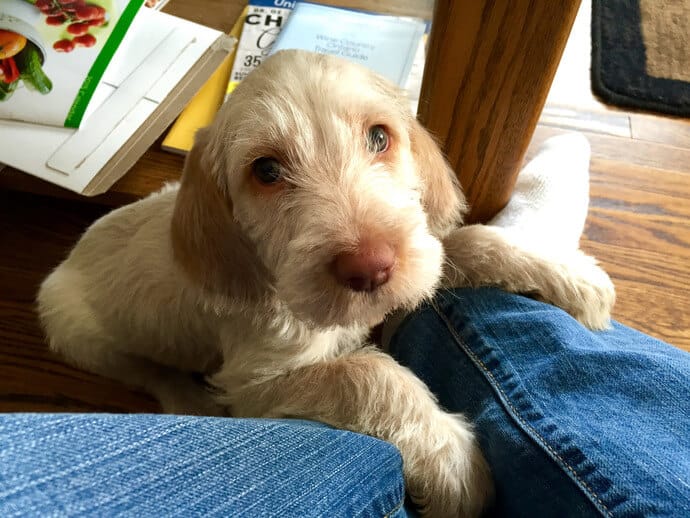Pretend that you’re sitting on the couch with your dog friend, catching up on Breaking Bad (even though it’s been out for years, but whatever, I’m not going to spoil it for you). Anyway, you’re petting your buddy, and you notice that there’s a weird lump or bump that you never noticed before.

What do you do? I tend to freak out about most things, but I’d advise against following my example because you’ll probably get stomachaches from the stress.
First of all, make an appointment at your veterinarian’s office. You, as a normal civilian of the world without medical training--except for maybe that babysitting course that you took when you were 13--are not capable of diagnosing anything.
 Not you.
Not you.
It’s true that most lumps that are found are just fatty tumors, and about half of the lumps that people might find are just benign (but may need to be removed at some point). Sometimes, your dog can develop ulcers from allergic reactions, lesions from ringworm, or even blackheads.
So, not necessarily something to worry about, but still something you should have the doctor look at: with an appointment or by sending a video to Online Vet, just make sure your pooch is okay.
There are breeds of dogs (like Retrievers and Boxers) that develop skin tumors at a higher level than others, but they usually show up when they’re adult dogs. Sun exposure obviously increases the chances of developing skin tumors, so be sure that your dogs are kept out of direct sunlight as often as possible.
If you see a tumor or lump that’s growing in size or an open sore that just won’t heal, there’s a much higher risk that it’s a cancerous one. For more information and a checklist, be sure to click on this link!

Just remember: when in doubt, make a vet appointment. You'll be so glad you did!
Read more posts about pet health
Was this article helpful?
Help us make our articles even better










